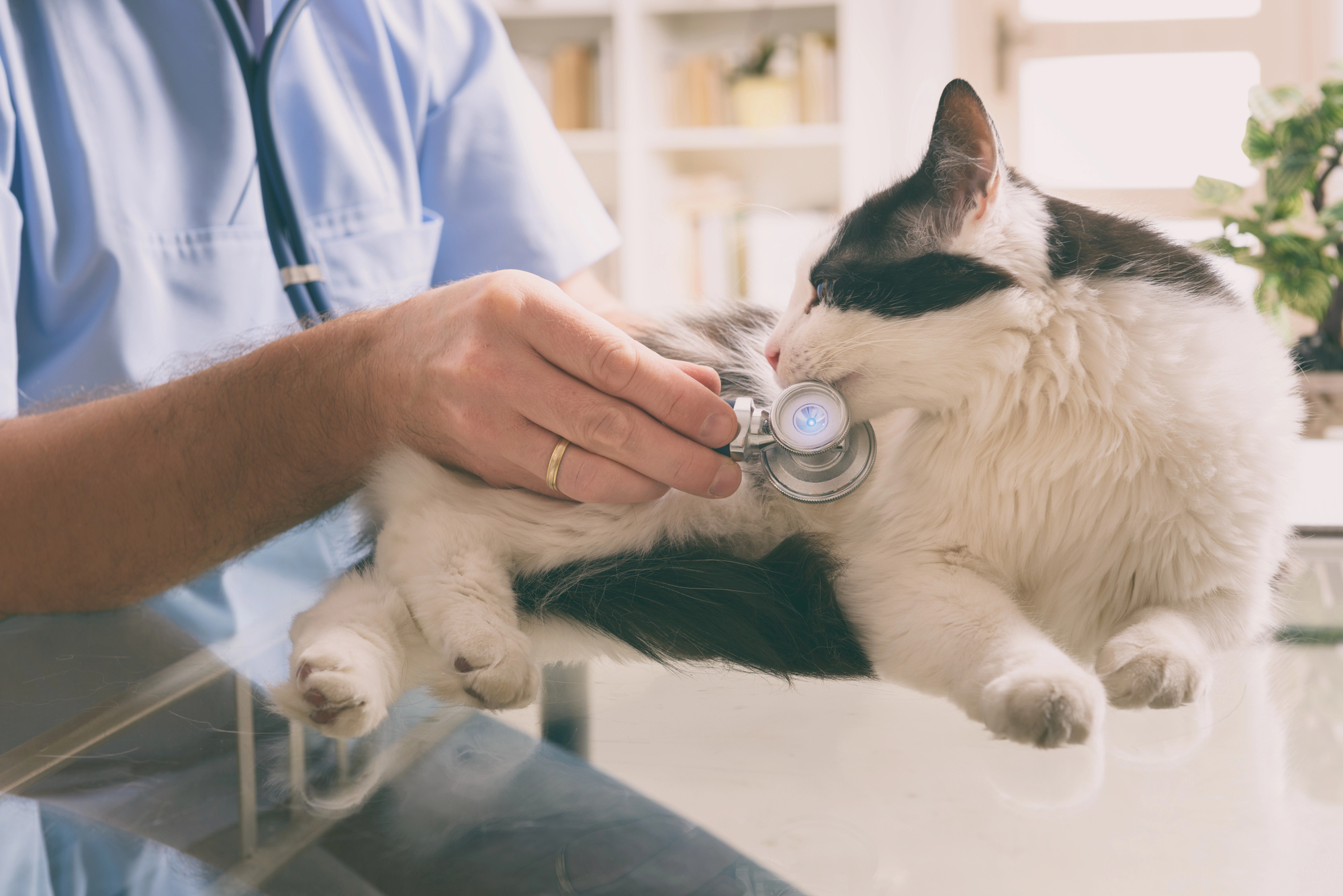Protecting Your Pet From Pests This Fall: Fleas, Ticks, and Mosquitoes

Protecting Your Pet From Pests This Fall: Fleas, Ticks, and Mosquitoes
As the warm, humid days of summer stretch into early fall in Windermere, many pet owners find themselves facing an unwelcome seasonal challenge: the persistent threat of fleas, ticks, and mosquitoes. These pests are more than just a nuisance; they can transmit serious diseases and trigger uncomfortable allergic reactions in both dogs and cats. At Golden Heart Veterinary Care, located at 13205 Reams Rd, Suite 172, Windermere, FL 34786, we understand how important it is to protect your furry family members. Our team of veterinarians is here to help you with tailored fall pet pest prevention strategies that keep your pets healthy and happy throughout the season. In this blog, you’ll learn how to recognize the signs of pest problems, why these pests thrive in our local climate, what you can do at home, and when it’s best to schedule an appointment for professional care.
If you’re searching for reliable flea and tick control in Windermere, this guide will walk you through everything you need to know. We’ll also show you how our veterinary professionals at Golden Heart Veterinary Care can help you stay ahead of these common autumn threats with services like wellness exams and targeted prevention programs. Let’s dive into how you can make this fall a safer, more comfortable season for your pet.
Spotting the Signs: How to Recognize Pest Problems in Your Pet
When it comes to fall pet pest prevention, early recognition is key. Fleas, ticks, and mosquitoes can all cause visible and invisible problems for your pet, and their effects can range from mild discomfort to life-threatening illness. Knowing what to look for can help you respond quickly and effectively.
Key symptoms of flea infestations include persistent scratching, excessive grooming, red or irritated skin, hair loss, and sometimes the presence of tiny black specks known as flea dirt. In some cases, pets may develop allergic reactions, leading to inflamed skin or even secondary infections. Tick bites are often harder to spot, but signs may include a visible tick attached to your pet’s skin, localized swelling or redness, and in rare cases, symptoms like lethargy, fever, or joint pain if a disease is transmitted. Mosquito bites can cause itchiness, bumps, and most importantly, pose the risk of heartworm transmission, which may go unnoticed until more serious symptoms appear.
If your pet seems unusually itchy, is losing fur in patches, or you notice any unexplained changes in their behavior or appetite, these could all be warning signs. In Windermere and surrounding communities, the subtropical climate means pests are active longer, so vigilance during fall is especially important. If you’re unsure, a pet examination in Windermere can help our veterinary team identify and address any concerns early.
Why Are Fleas, Ticks, and Mosquitoes a Problem in Windermere This Fall?
Understanding why pests are a particular problem during fall in Central Florida helps explain why consistent prevention is so crucial. Fleas thrive in warm, humid environments, and our region’s lingering moisture after summer rains creates the perfect breeding ground. Even as temperatures drop slightly in fall, the weather remains ideal for fleas to complete their life cycle both outdoors and inside your home.
Ticks, which are commonly found in wooded, grassy, or even landscaped areas, stay active well into the autumn months. They attach to pets during outdoor adventures, walks, or even in backyard play. The risk of tick-borne diseases such as Lyme disease or ehrlichiosis persists as long as ticks are feeding.
Mosquitoes are notorious for being most active at dawn and dusk, which often coincides with popular dog-walking times. In addition to causing itchy bites, mosquitoes carry heartworms—a potentially fatal parasite for dogs and cats. Heartworm disease is a year-round risk in our area but becomes especially concerning during extended mosquito seasons.
Our local climate means that skipping fall pest prevention is not an option. Many pet owners are surprised to find that pest problems can actually peak during the early fall, making ongoing protection critical for every pet in Windermere and surrounding communities.
Professional Treatment and Prevention: What to Expect From Your Veterinarian
When it comes to effective fall pet pest prevention, our veterinarians at Golden Heart Veterinary Care recommend a comprehensive approach tailored to your pet’s lifestyle and health needs. Treatment options involve prescription flea and tick preventives, which may be administered as topical solutions, oral medications, or collars. These products are designed to kill pests quickly and break the life cycle, helping to prevent infestations before they start.
For tick control, our veterinary team may recommend regular tick checks, especially after outdoor activities, and can demonstrate the safest way to remove any ticks you find. In cases where a tick-borne disease is suspected, diagnostic blood tests may be needed to check for underlying infections.
Mosquito prevention centers around effective heartworm control. Our veterinarians recommend year-round heartworm prevention for both dogs and cats, using products that are proven safe and effective. If your pet is not already on a preventative, now is the time to start. We also provide heartworm testing for pets in Windermere to ensure your pet is protected from this serious threat.
During a wellness visit, we will discuss the best prevention plan for your pet and may suggest additional services such as pet allergy testing in Windermere if your pet shows signs of skin irritation or persistent itching. This comprehensive approach ensures your pet receives the most effective flea and tick control in Windermere and surrounding areas.
Home Care and Prevention: Steps Pet Owners Can Take
While veterinary-prescribed prevention is the gold standard, there are several steps you can take at home to further protect your pet. Regularly vacuuming carpets, rugs, and pet bedding helps eliminate flea eggs and larvae, reducing the risk of home infestations. Washing your pet’s bedding and toys in hot water can also break the flea life cycle.
For pets that venture outdoors, checking their fur and skin after walks or playtime can help you spot ticks before they attach for long periods. Keeping your lawn trimmed and removing leaf litter or tall grasses from your yard reduces tick habitats. Ensuring that windows and doors are sealed, and using screens can limit mosquito entry into your home.
Consistent monthly administration of veterinary-approved preventives remains the cornerstone of fall pet pest prevention. Over-the-counter treatments are less effective and may even be harmful, so consult our veterinary professionals before starting any new product. If you notice signs of skin irritation or allergic reactions, our allergy testing services can help pinpoint the cause and guide further treatment.
It’s also wise to schedule annual vaccination updates, as some vaccines can help protect your pet against certain tick- or mosquito-borne diseases. If you have questions about pet vaccinations in Windermere, our veterinarians are happy to review your pet’s records and recommend appropriate boosters.
When to Schedule a Veterinary Visit: Knowing When Professional Care Is Needed
There are times when home care is not enough, and professional veterinary intervention is necessary to keep your pet safe. If you spot fleas or ticks that persist despite preventive treatment, or if your pet develops severe itching, hair loss, or skin infections, it’s time to schedule an appointment. Unexplained lethargy, loss of appetite, persistent coughing, or difficulty breathing may indicate a more serious infection or heartworm disease.
Pets that are very young, elderly, or have chronic health conditions are especially vulnerable to the effects of pest-borne illnesses. If you notice any sudden changes in your pet’s health, don’t hesitate to reach out to our veterinary team. Prompt diagnosis and treatment can prevent complications and ensure your pet’s comfort.
At Golden Heart Veterinary Care, we are committed to helping you navigate all aspects of flea and tick control in Windermere. Our approach combines advanced diagnostics, individualized prevention plans, and ongoing support for every stage of your pet’s life. If you ever have concerns about your pet’s exposure to pests or need advice on the best prevention products, our veterinarians are just a phone call away.
Protecting Your Pet This Fall: Take Action With Golden Heart Veterinary Care
Fall in Windermere is a beautiful season, but it comes with unique challenges for local pets and their families. By staying vigilant and partnering with the experienced veterinary professionals at Golden Heart Veterinary Care, you’re giving your pet the best chance for a pest-free, healthy autumn. Remember, consistent fall pet pest prevention is key—especially in our warm, humid climate where fleas, ticks, and mosquitoes are active well into the season.
If you’re searching for a "vet near me" who understands the specifics of flea and tick control in Windermere, our compassionate team is here to help. We encourage you to schedule a wellness examination or consult with our veterinarians about the most effective prevention plan for your dog or cat. Whether you need advice on heartworm prevention, help with allergy testing, or a comprehensive pest management strategy, we’re ready to support you.
To get started, contact us at (407) 392-1888 or visit us at 13205 Reams Rd, Suite 172, Windermere, FL 34786. You can also explore more about our pet examinations and wellness care or pet vaccinations in Windermere for year-round protection. Take the next step toward ensuring your pet’s comfort and health this fall—schedule your appointment with our veterinary team today.
For more information about flea, tick, and mosquito prevention, consult your veterinarian or trusted resources such as the American Veterinary Medical Association (AVMA Flea and Tick Resources). Always consult a veterinary professional before starting any new treatment or preventive care plan.






















